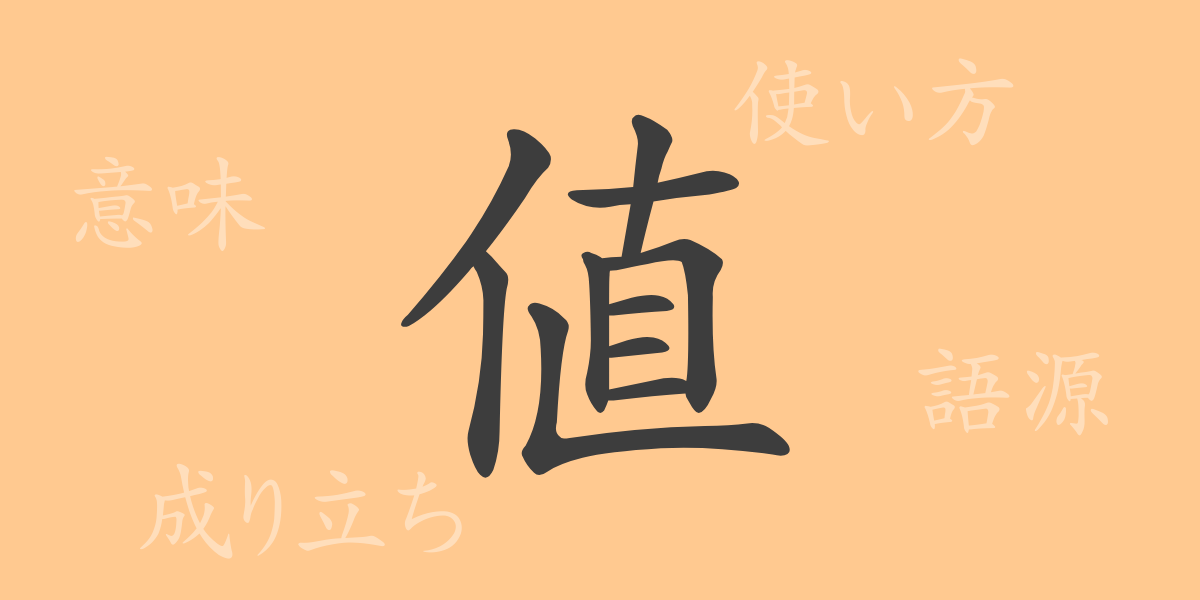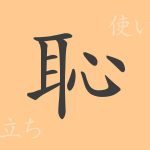The richness of the Japanese language is reflected in its delicate characters. Each commonly used kanji carries deep meanings, diverse applications, and a historical background that offers a glimpse into culture through language. The kanji “値(あたい) (atai)” is no exception. In this article, we will delve into the origins, meanings, usages, readings, and associated idioms of “値(あたい) (atai),” exploring the full scope of this commonly used kanji.
Origin of “値(あたい) (atai)”
The kanji “値(あたい) (atai)” has long been used to denote price or value. It is known to have developed from ancient Chinese pictographs. The character combines “亻(にんべん) (ninben),” representing a person, with “貝(かい) (kai),” which depicted a person holding a shell, symbolizing currency in ancient China. As a result, this kanji came to signify something of value.
Meaning and Usage of “値(あたい) (atai)”
The kanji “値(あたい) (atai)” primarily refers to price or value. It is often used in economic contexts, such as in “価値(かち) (kachi)” (value), “価格(かかく) (kakaku)” (price), and “値打ち(ねうち) (neuchi)” (worth). Additionally, it can be used metaphorically, as in “人の値打ち(ひとのねうち) (hito no neuchi)” (a person’s worth). The phrase “値する(あたいする) (atai suru)” means “to be worthy” or “to deserve.”
Readings, Stroke Count, and Radical of “値(あたい) (atai)”
The kanji “値(あたい) (atai)” has several key characteristics.
- Readings: The On’yomi (音読み) reading is “チ(ち) (chi),” and the Kun’yomi (訓読み) readings are “あたい (atai)” and “ね (ne).”
- Stroke count: “値(あたい) (atai)” consists of 15 strokes.
- Radical: The radical is “亻(にんべん) (ninben),” which relates to people or actions.
Idioms, Proverbs, and Expressions Using “値(あたい) (atai)” and Their Meanings
There are numerous idioms, proverbs, and expressions containing “値(あたい) (atai)” in Japanese, each illustrating the richness of the language. For example, “値段(ねだん) (nedan)” means the price of an item, and “値打ちがある(ねうちがある) (neuchi ga aru)” means something is of high value. “値をつける(ねをつける) (ne o tsukeru)” means to set a price, and “値が張る(ねがはる) (ne ga haru)” means something is expensive. The proverb “値には勝る利なし(ねにはまさるりなし) (ne ni wa masaru ri nashi)” means there is no profit greater than the price, highlighting the importance of value.
Summary of “値(あたい) (atai)”
Through this article, we have explored the diverse meanings and usages of the kanji “値(あたい) (atai),” as well as the idioms and proverbs it is used in. This kanji plays a crucial role in economic activities and is deeply rooted in our daily lives, conveying numerous nuances depending on its use. We hope this exploration enhances your understanding of Japanese and aids in achieving richer expressions in the language.

























